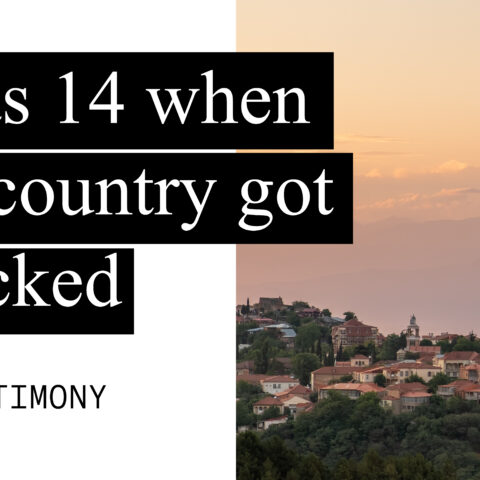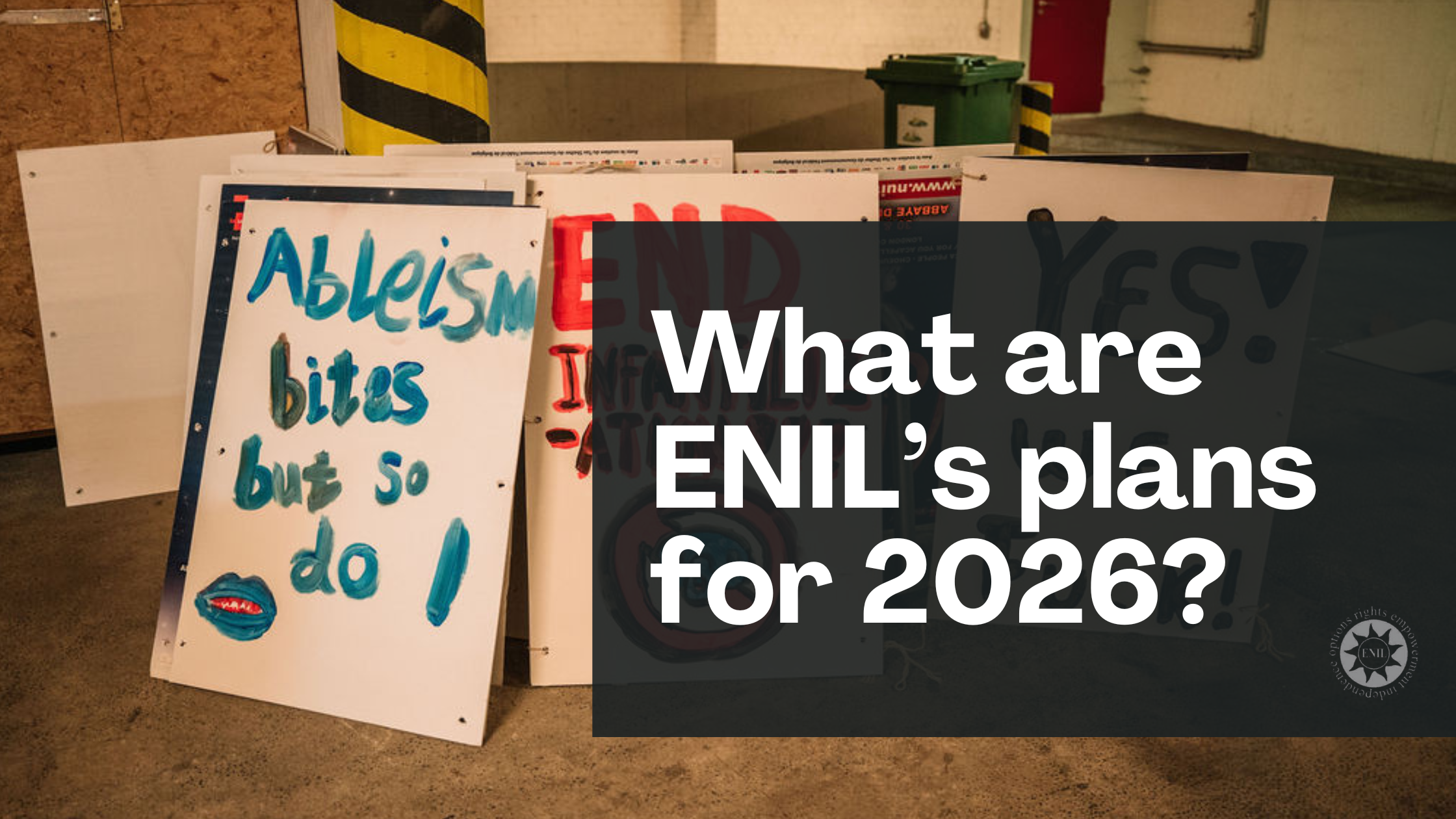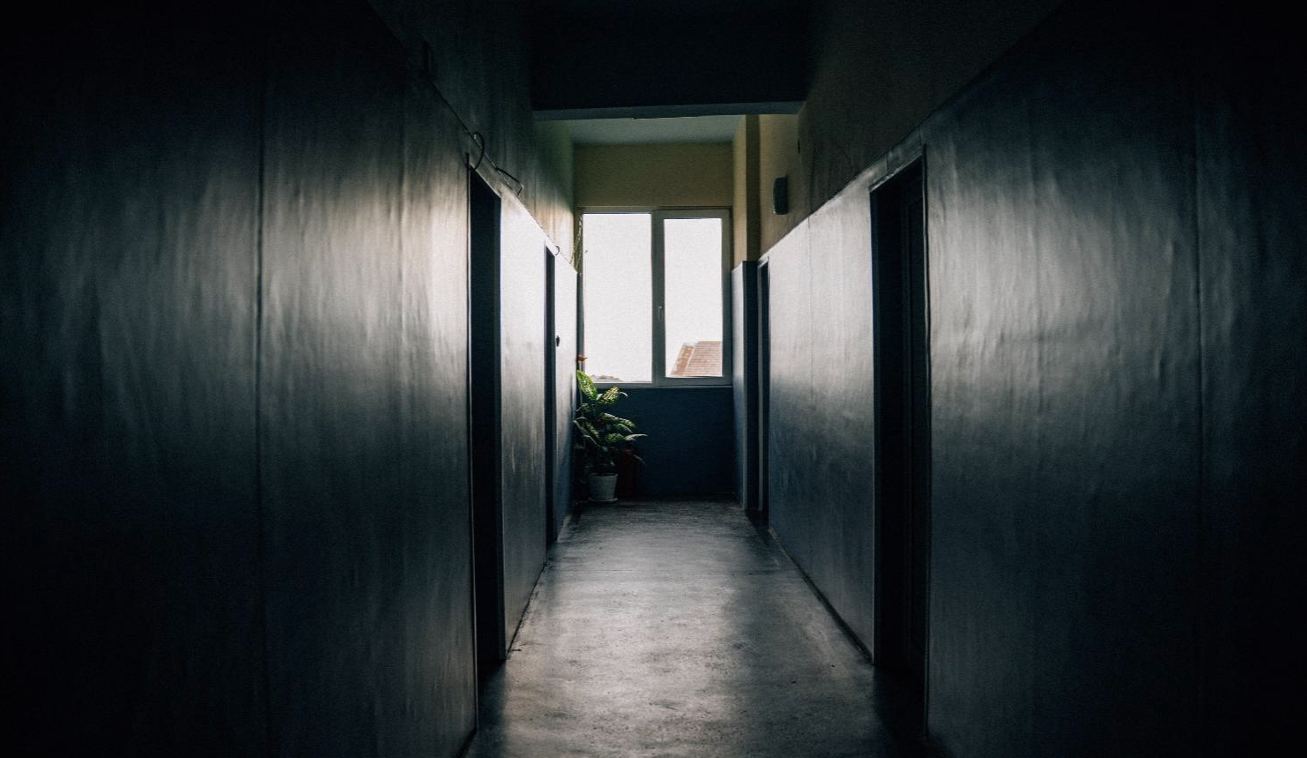I was just turning 14, when Russia waged a full-scale military offensive on Georgia in August 2008. Throughout the horrors of the war days I was speculating, where could my family flee, if the war persists. I thought Ukraine could be such a place, however today we see that it too is about to face similar full-scale war. It was also those days, where I first dreamed of a day, when I could represent my country’s interests internationally.
The school-year was supposed to start mid-September, however we turned out to be unable to return to our class-rooms, as the school building was populated by the Internally Displaced Persons/IDP-s, who had to leave their homes due to the war and could not return even after the hostilities had ceased. I remember facing hanged washed clothes, bed-sheets and towels in my school-yard. I was taking Piano classes, but did not have the instrument at home. So, I would usually practice, do my homework at school. In October 2008 I was playing in a class-room full of beds. I was studying at a Tbilisi #202 specialized school for the blind, the only one of its kind in Georgia. Therefore, it has a dormitory, showers, stoves and a kitchen. It was more convenient to live in than an average mainstream school. The Ministry of Education staff was explaining that they could not have found an alternative place for the IDP-s to live on time, because in August, during the war, everybody was on a vacation. We fell short of being sent into an academic gap year. I remember bringing text-books from the school library, because I decided to homeschool, if the school would have been closed for that year not to waste time. Our parents had been bringing us to the ministry, where they were trying to negotiate. We were present at those talks. I remember having a determination to sit in there even overnight, if the civil servants would not meet us. Eventually the IDP-s were relocated to another place and we, though later than usual, still were able to start classes catching up on Saturdays.
In 2019 as a result of 4 attempts, of 4 years of participating in a 3 round selection process, I finally was selected as Georgia’s Youth Representative to the United Nations and had an opportunity to speak from a diplomatic chair at the 74th UN General Assembly’s 3rd committee on behalf of the whole Georgian youth. I was the first and the only one out of 9 Georgian UN Youth Delegates having a disability and one of very few ones with disabilities globally. After my speech was over, I was approached by few other youth delegates from countries located very far away from Georgia, who, perhaps, had very little information about my country previously and told me how moved they were by the example of youth’s struggles I have brought up. That evening, when I was sitting at the Georgian Permanent mission at the UN in the ambassador’s room together with few Georgian diplomats, where that day of the assembly was being discussed, I had such a sense of unity and team with them.
As an example of the intersectional challenges a young person may face due to the multiple identities, I told a story of a blind young woman living in the conflict zone. She had to stay in the dorms even when other students would usually leave for homes (for instance on the week-ends and holidays) as crossing into her home region and back to school paused a huge challenge for her and her family. Upon graduation she wanted to continue her studies at a university, however due to the difficulties crossing the “administrative boarder”” and the fact that she was not given entrance exam waver, because unlike the sighted youngsters from her region she had graduated from the specialized school, which is located on a territory controlled by the Georgian authorities, she had to wait for a year to get into the university. Besides her parents were worried to send 2 daughters (my school-mate and her sighted sister) to live alone and study (gender aspect). Besides she cannot study without her sister, as there are no personal assistants, very few accessible learning materials and absence of accessible public transport. There is no standard of inclusion at a higher education level in Georgia. Therefore, accommodating the needs of disabled students depends on the good will of a given university. Therefore, my younger school-mate is facing barriers not only due to her disability, but also gender, age and origin (her being from a conflict zone).
Since 2019 I also am involved in peace building initiative group the 16th Element. It is named after the UNSDG #16 Peace, Justice and Strong Institutions. As its member I contribute blogs covering topics such as the situation of the rights of persons with disabilities in Abkhazia (an occupied region of Georgia and a conflict zone). I also interviewed 1 blind person and a mother of a person with disabilities, both of whom had been IDP-s since 1990s about their memories before, during and after the war.
Persons with disabilities including the youth, need to be included both in conflict transformation and peace-building and the disaster risk reduction and humanitarian action related decision-making. Not only because we are citizens as well as the non-disabled and, therefore, whatever concerns the general population, shall concern us as well, but also because persons with disabilities are usually ones the more affected by conflicts and natural disasters. In 2020 the UN Security Council passed a resolution on protecting persons with disabilities during armed conflicts. Though I am grateful to the Government of Poland, which sponsored this resolution, as it was the first time, when persons with disabilities were mentioned in a context of conflict, this resolution differs in principle from the ones the UNSC has previously passed on Women, peace and Security and Youth, Peace and Security. Persons with disabilities constitute a group of people, just as women and the youth do, however both resolutions on women and the youth, unlike one on persons with disabilities, views them not only as mare objects of protection, but as subjects, actors and partners in promoting peace and security. The UNSC resolutions have high prestige and authority. Some of them are legally binding, but even those that are not, are often profiled very high. Therefore, it will be important for the UN Security Council to bring its resolution on disability in armed conflict in line with the principles of CRPD, which in its article 11 talks about active participation of persons with disabilities as proactive subjects in decision-making related to natural disasters and armed conflicts and name it the “UNSC Resolution on the Disabled, Peace and Security” not the “protection of persons with disabilities in the situation of the armed conflict”.
On February 13th 2022 there was an earth-quake in Georgia. It once again reminded me that I do not know where the shelters and bunkers are located in my city and whether or not they are accessible for persons with disabilities. In 2017 I was given an opportunity to read through and write feedback on the National Disaster Risk Reduction Strategy 2014-2020 and its implementation action plan for 2017-2020. However, that was already 3 years into the DRR National Strategy and only thanks to the Germany based organization ASB, whose Georgian office had a project on Disability Inclusion in Disaster Risk Reduction. That year I was invited and funded by the ASB to attend, participate and speak at the UN Global Platform on Disaster Risk Reduction in Mexico as a civil society representative. Since then, the national DRR strategy must have been renewed, however the ASB-s project is over and Georgian authorities so far unfortunately have not taken over the responsibility of involving persons with disabilities and our organizations in Disaster Risk Management and Preparedness.
This article was written by Esma Gumberidze a member of the ENIL Youth Network from Georgia.




